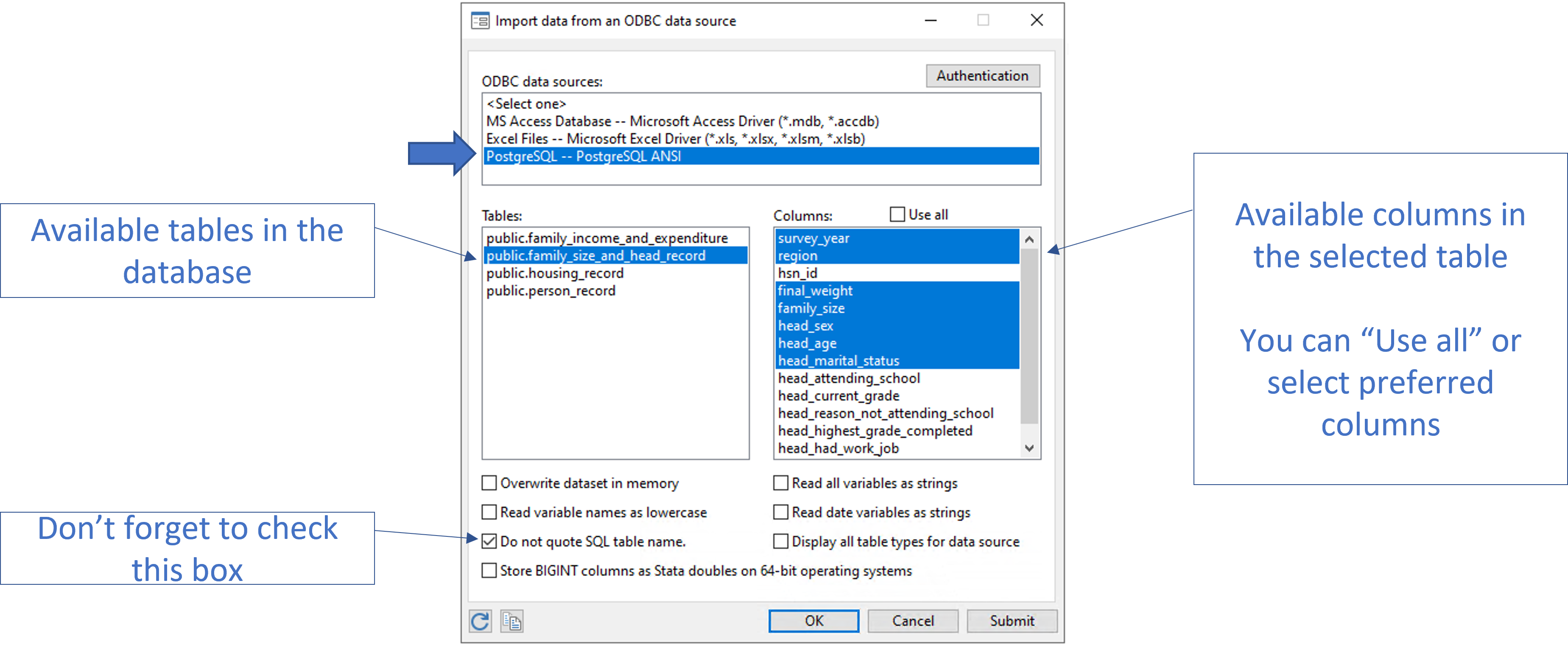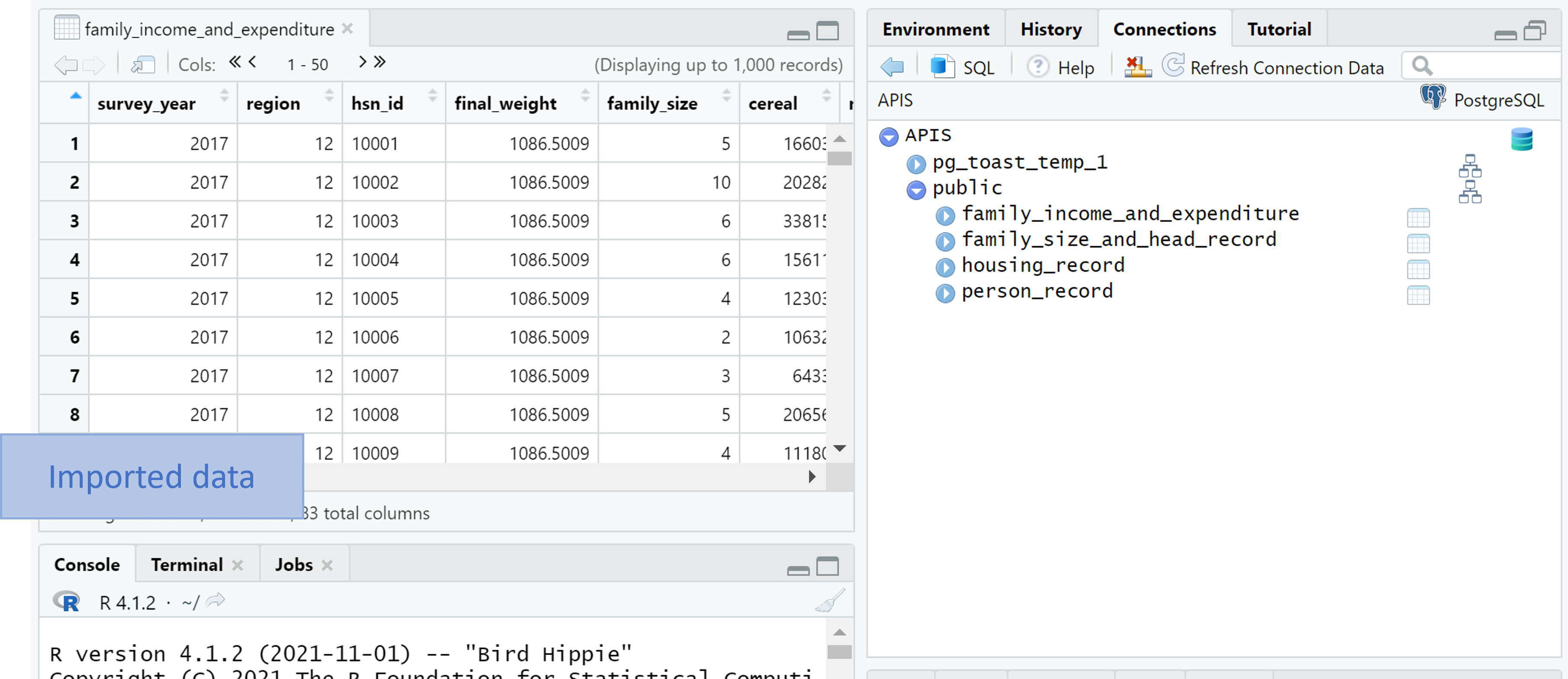Family Health Survey

The Family Health Survey (FHS) is a nationwide survey designed to provide information on fertility, maternal and child health, family planning, maternal and child mortality, and other health-related concerns in order to assist policymakers and program managers in evaluating and designing strategies for improving health and family planning services in the country. The FHS updates findings from the series of Family Planning Surveys conducted from 1995 to 2006, and various rounds of the National Demographic and Health Survey. The survey was designed to provide data representative of the country and its 17 administrative regions. The FHS involved interviewing all women who are 15 to 49 years of age in the sample households. These women were asked questions about some of their background characteristics, the children they have given birth to, use of family planning methods, antenatal and postnatal care received during pregnancy, vaccinations received by their children, and other valuable health-related information. The classification of a household to indicate its socio-economic status was done by the National Statistics Office based on the responses on the presence of household conveniences, that is, a household was assigned a score that will indicate its socio-economic standing. Household conveniences include electricity, radio or radio cassette, television, landline telephone, cellular phone, washing machine, refrigerator or freezer, CD/VCD/DVD player, component or karaoke, personal computer, and gas stove or gas range. Vehicles include tractor, motorized banca or boat, car/jeep/van, motorcycle or tricycle and bicycle or pedicab.
| Datasets | Microdata | Documentation | Database |
| Family Health Survey 2011 |  |  |  |
Guide on How to Access the Data Marts using the following applications:

- Enter the server account details and then click the "Open" button.
- Hostname/IP:
- Username:
- Password:
- Database:
Accesing data using ODBC
- Make sure you have an empty dataset by typing "clear" in the Command window and pressing [ENTER].

- From the File menu, select Import then click ODBC data source.

- In the "Import data from an ODBC data source" window, select the created ODBC data source. Then click “Ok” or “Submit” to import the data.

- Click “Data Editor (Browse)” icon to view the imported data.


Connect to existing data sources
- Click the New Connection button to create a new data connection.

- You will see a list of available connection types displayed; choose one to create a connection to the associated data source.

- Click "OK" to load the data.

- Click “View Table” icon to view the imported data.


PUF Terms and Conditions
TERMS AND CONDITIONS
Authorization to use the data is granted only to the Client who downloaded the data, subject to the following terms and conditions:
- The data, downloadable in this website, conforms to the provisions of confidentiality stated under Title VII, Rule 29, Article 55 of the Implementing Rules, and Regulations of RA 10625 which says that “Individual data furnished by a respondent to statistical inquiries, surveys and censuses of the PSA shall be considered privileged communication and as such shall be inadmissible as evidence in any proceeding. The PSA may release aggregated information from statistical inquiries, surveys, censuses in the form of summaries or statistical tables in which no reference to an individual, corporation, association, partnership, institution, or business enterprise shall appear.”
- Under no circumstance shall the Client REPRODUCE, DISTRIBUTE, SELL, OR LEND THE ENTIRE DATA OR PARTS THEREOF to any other data user apart from himself. The PSA shall hold the Client fully responsible for safeguarding the data from any unauthorized access or use.
- Data will be used for statistical and scientific research purposes only. They will be employed solely for reporting aggregated information, including modeling, and not for investigating specific individuals or organizations.
- No attempt will be made to re-identify respondents, and there will be no use of the identity of any person or establishment discovered inadvertently. Any such discovery will be reported immediately to the PSA.
- No attempt will be made to produce links between datasets provided by the PSA or between PSA data and other datasets that could identify individuals or organizations.
- Any information derived from the data including its use or interpretation, or inferences based upon it shall no longer be the responsibility of the PSA.
- Any report, paper, or similar articles, whether published or not, resulting from the use of the data shall give appropriate acknowledgment to the PSA as the source of basic data. Proper attribution to PSA should also be made in reports with statistical tables, graphs and infographics, presentations, papers, or similar articles which make use of PSA data. The Client is encouraged to provide PSA with a copy of such report, paper article. It is understood that unless expressly allowed by the Client, such report, paper, or article shall not be used for any purpose other than monitoring.
















